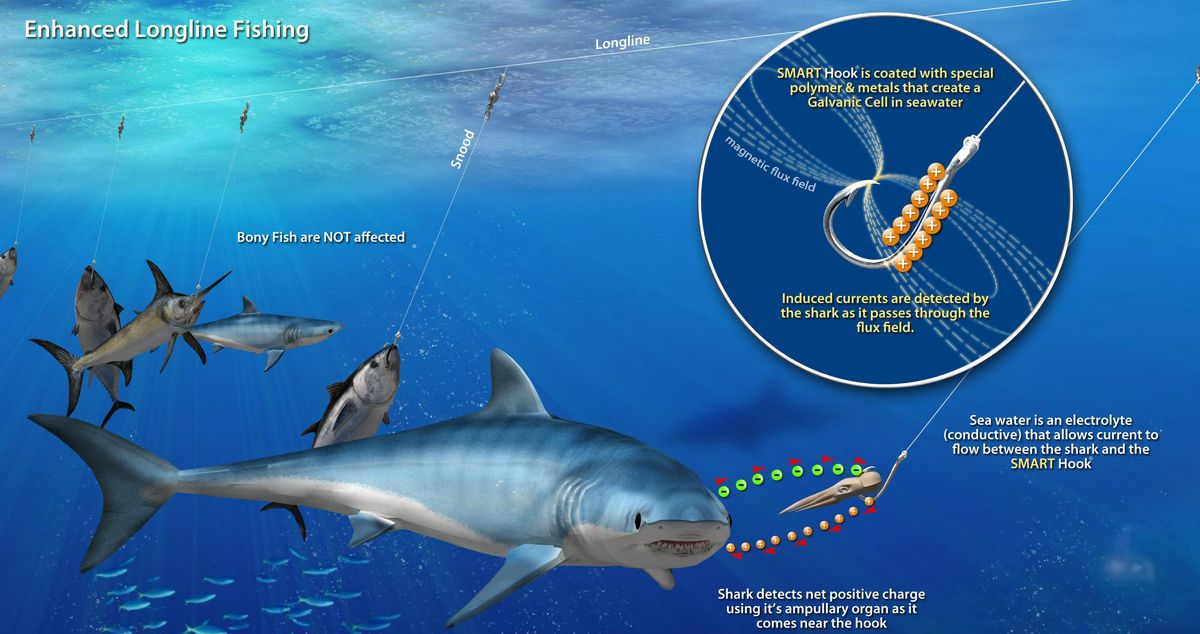Research in Action: New Fishing Hook Reduces Shark Catch

This Research in Action article was provided to LiveScience in partnership with the National Science Foundation.
In an effort to help the fishing industry improve their catch, scientists at Shark Defense have developed a new type of fishing hook that is able to reduce the number of sharks accidentally caught during commercial fishing for tuna or swordfish.
This new type of hook is called the "SMART Hook™," which stands for a "selective magnetic and repellent-treated" hook, and combines two published shark repellent technologies, magnetism and shark repellent metals, into standard fishing hooks. The result is a fishing hook that interferes with the highly sensitive electrical sense found in a shark's nose. Market-valuable fish, such as tuna, do not have this electrical sense and are not repelled by the hook. The result? Less sharks mean that more hooks are available to catch fish, and catching more fish increases profitability for the fishermen.
The SMART Hooks are used in longline fisheries, where fishing often occurs at night (e.g. swordfish fishing) and in deep water. Nighttime fishing means that sharks hunt using other senses, like the electrical sense, instead of relying on eye sight. This means that they may be more vulnerable to things that affect this sense, like the SMART hook.
The magnetic and shark repellent metal technologies used in the SMART Hook have previously shown an 18 percent to 68 percent reduction in shark catch, depending on the location and the species.
Any opinions, findings, and conclusions or recommendations expressed in this material are those of the author and do not necessarily reflect the views of the National Science Foundation. See the Research in Action archive.
Sign up for the Live Science daily newsletter now
Get the world’s most fascinating discoveries delivered straight to your inbox.














